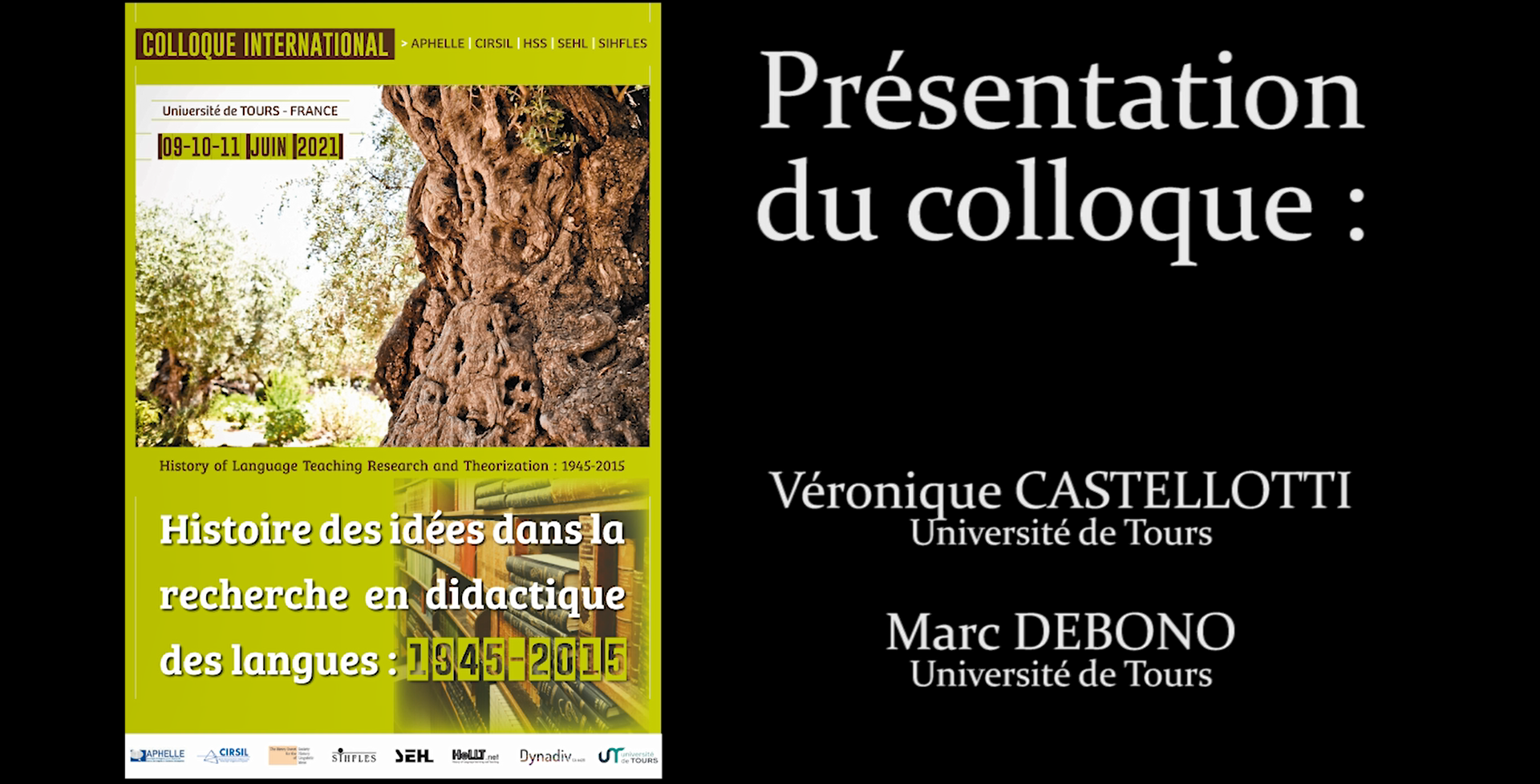Notice
Simon Coffey - “within the consciousness of living men”: Charting conceptions of French learning in England since 1945 and how disciplinary epistemologies have shaped its historiography
- document 1 document 2 document 3
- niveau 1 niveau 2 niveau 3
Descriptif
In thispaper I first present a brief overview of the development of French as adiscipline of study in England since the post-war period, in particular howFrench has been conceived for and by different groups of students. Then, in thesecond part of the paper, I consider how the historiography of French languageand teaching has reflected different epistemological concerns.
Duringthe initial post-war period, the study of modern languages remained highlydifferentiated across school types. While some introductory languages courseswere offered for the majority attending mainstream secondary moderns, mostnational exams were sat by the minority of selected pupils attending grammarschools, reinforcing the conception of French as an integral element of aliberal education for the elite. The massification of schooling from the 1960schallenged this status quo and led to the “languages for all” mantraculminating in a compulsory national curriculum for languages in 1992. Theuniformity of content, however, has not resolved the tensions between highlydifferentiated motivations stemming from sociocultural perceptions of the valueof learning languages.
As auniversity discipline the need for validation against the deeply-rootedpreference for classical languages led John Orr, in his 1933 inaugural lecture,to describe French as “the third classic”. This privileging of the textualcanon, whether as literature or philology, was challenged in the post-warperiod, and invited to respond to a protest against compulsory philology, DenisSaurat, Director of the Institut Français in London and Professor of French at King’s, arguedfor a focus on current cultural developments, stating that “the basis of ouruniversity studies of French should be the concrete facts of France’s cultureas they exist within the consciousness of living men” (p. 65).
It wasin particular, the turn to ‘communication’ and the influence of new disciplinessuch as ‘applied linguistics’ that allowed a reorientation of language study asan inherently practical discipline that could investigate problems through anewly formulated toolkit of methodological procedures. Such methods yield‘data’, whereas more established humanities disciplines such as literaryanalysis and textual historiography deal with ‘artefacts’. These differencesare not simply procedural but affect the context of research, its temporality,material and discursive circulation, and the synergies that result in newknowledge production.
Whileremaining a niche field, the historiography of French language and teachingitself has been shaped by particular disciplinary perspectives. Although aninherently interdisciplinary field of enquiry, it is telling, for instance,that the history of French teaching has been researched within universitylanguage and/or history departments rather than in education faculties. The aimof this paper, therefore, is to examine the development of French learning in Englandsince 1945, and how the history of French teaching has itself been researched. Theepistemological and methodological frames cited, which include selection ofsources and scales of periodisation, are inextricably linked to disciplinaryconstructions of French, such as the socio/linguistics of French, French as aschool curriculum subject, ‘French studies’ as humanities discipline inuniversity departments.
- Coffey, Simon (2020, in press) Périodisation et bornesdisciplinaires dans l’historiographie de l’enseignement du français enAngleterre. Langue Française.
- Forsdick, Charles (2011) Why FrenchStudies matters: Disciplinary identity and public understanding. In French Studies in and for the 21st Century.Edited by Philippe Lane and Michael Worton (pp 37-57). Liverpool: LiverpoolUniversity Press.
- Wygant, Amy (2009) Modern studies:Historiography and directions. French Studies Bulletin 30/ 113: 75-78.
Dans la même collection
-
Pierre Sallé - Créativité et DDL : Le cas des pratiques théâtrales (1970-2015) : Perspectives et en…
Comme le faisaient remarquer à juste titre Huver et Lorilleux (2018), « la question de l’articulation entre art et didactique des langues n’est pas nouvelle, mais sa caractérisation par le terme de
-
-
Les enjeux d’universitarisation de la recherche en FLE et didactique des langues - hommage à Rober…
Avec notamment : Henri BESSE, Véronique CASTELLOTTI, Daniel COSTE, Georges-Daniel VERONIQUE. Le français langue étrangère s’est constitué, après la deuxième guerre mondiale, à travers deux directions
-
Marie-Madeleine Bertucci - Propositions pour une étude de la mise en perspective critique de la not…
La communication vise à proposer des éléments d’étude de la notion de langue maternelle à partir de l’analyse qui en est faite dans un ensemble de travaux de recherche en didactique du français
-
-
Georges Daniel VERONIQUE - Contre l’applicationnisme linguistique, la Didactologie des langues-cult…
Le terme de linguistique appliquée émerge en Europe à la fin des années 50. En France, le Centre de Linguistique Appliquée de Besançon (CLAB) est créé en 1958. Une décennie de travaux en
-
Alper ASLAN - Le DELF (Diplôme d’études en langue française) : un passé sans histoire ?
Créé en 1985, le DELF représente un enjeu important tant sur le plan politique que sur le plan économique (Coste, 2014). Malgré son rôle dans la diffusion du français, l’histoire du DELF dans le
-
David Bel - Quelle(s) histoire(s) pour la didactique du FLE?
Quand une discipline perd son passé, elle perd aussi son avenir (Galisson, 1988) Cette interpellation forte de Robert Galisson nous amène d’une part à considérer sérieusement l’historicité de
-
Polina Shvanyukova - Language Education and Gender Studies: Focus on Italy, 1975 – 2015
In this contribution I shall explore the link between language teaching and the topical research area of Gender Studies (cf. Sunderland 1994, Pavlenko et al. 2001, Decke-Cornill and Volkmann 2007,
-
Maxi Pauser - Tertiary Language Teaching and Learning principles: The Case of German L3 at Spanish …
In the last quarter of 20th century the communicative approach or communicative language teaching (CLT) has been gaining importance and popularity at an accelerated rate in all European countries.
-
Javier SUSO LÓPEZ - Approche humaniste vs approche scientifique dans la didactique des langues viva…
Le tournant scientifique dans la didactique des langues vivantes annoncé par H. Palmer (1917, The Scientific Study and Teaching of Languages ; 1926, The Principles of Language Study) se consolide dans










